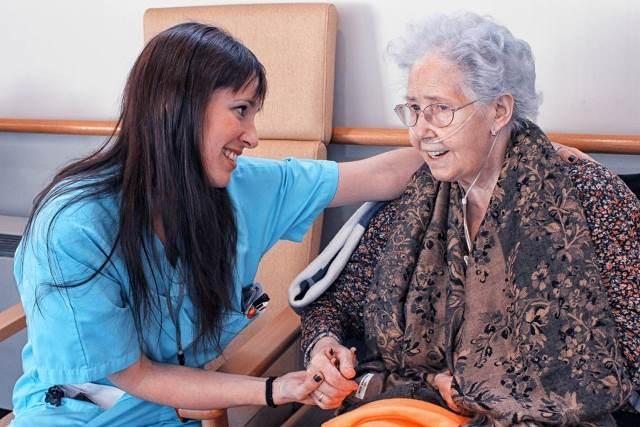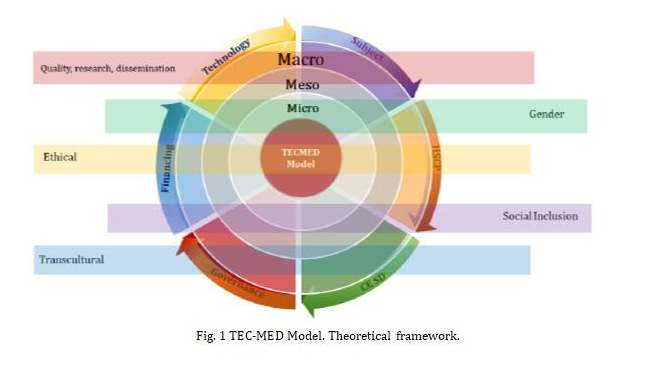TEC-MED commence à mettre en œuvre un plan de renforcement des capacités pour réduire la marginalisation des personnes âgées

Ce contenu est disponible uniquement en anglais
The TEC-MED project has been creating a model of cross-cultural socio-ethical-care assistance for a year and a half that puts the person at the centre. We have created a model that allows comprehensive care, which unites the clinical history of the person and their social situation.
TEC-MED will contribute to reduce the marginalization of elderly people and improve the quality of social services provided to them. Through the development of a common model supported by software applications, the project can help to set a benchmark model for social assistance in the Mediterranean region. The project will also support cooperation among institutions for the set-up of laboratories of “ideas” for designing innovative social services.
The capacity building plan is the basic pillar to get the success
Training and capacity building are important components of the preparation of social and health care providers for the elderly population. This is even more important given that older people have been severely affected by the COVID-19 pandemic and are at higher risk of more serious complications. Older people are being challenged by requirements to spend more time at home, lack of physical contact with other family members, friends and colleagues, and anxiety and fear of illness and death. Community training can help to build capacity for creating opportunities to foster healthy ageing during and after the pandemic.
Training is important to provide older people and their households, health- and social care workers and local authorities and community group guidance and advice for health promotion, prevention and care to elderly people. In support of the implementation of the transcultural social-ethical-care TEC-MED model developed for dependent and/or at risk of exclusion elderly populations.

We will implement the TEC-MED model in six countries (Spain, Egypt, Lebanon, Greece, Italy and Tunisia), a number of actions are planned, among them:
- Developing a partnership platform for sharing knowledge and good practices, as well as enhancing the visibility of the model.
- Formulating and applying a capacity building plan to strengthen skills of key agents involved in the implementation of the model (training agents, caregivers-formal and family-, final beneficiaries and other stakeholders focus on the quadruple helix and the three levels of management-macro, meso, micro-level).
- Responding to specific national or local capacity needs.
- Promoting the sharing of experiences and the dissemination of best practices between partner countries.
- These actions will be implemented through information sharing, training, study visits, workshops and demonstration activities, among others.
The main objective in TEC-MED model is to empower communities
The main objective of capacity building is to empower communities (or stakeholder groups representing communities) to define, assess, and act on issues they consider to be of relevance, and to anchor social and health programs sustainably within the community.
This principal objective can be achieved via the following specific objectives in line with the theoretical framework of TEC-MED model care and the main cross-sectional themes: quality, research and innovation, gender, social inclusion, transcultural, and ethic.
Empowering elderly people and families, and developing elderly education by social, cultural and technological support, including self-care techniques, the learning of new skills and digital competence, is one of the basic pillars of the model.
The second important point is training workforce policy and planning with a focus on education and capacity building plans aligned with national health and social care plans. For that purpose, providing adequate training programs for staff and caregivers with a focus on social care as well as promoting capacity building and training programs to develop skills to work in multi and interdisciplinary teams that include health and social professionals and caregivers is important. For that reason, we are working to strengthen the quality of health and social service delivery on the basis of integrated social and health care that responds to person and family’s needs and preferences, working with a holistic perspective and person-centred vision. In addition, we want to enhance the proactive health promotion and prevention, fighting with the abuse or neglect in the health and social services as well as a supportive social and physical environment with enough resources, material and human resources focusing on housing alternatives.
Moreover, in line with the philosophy of the model, we want to raise awareness of the importance of the quality of governance that uses a bottom-up perspective to approach elderly care from a perspective based on active and positive ageing, long-term care and that approaches the gender and social determinants of health for establishing the systems of care to elderly dependent people and/or at risk of exclusion. This, together with rising awareness of the importance of financing for developing and socio-ethical and transcultural care, also focus on the importance of public and universal funding, the quality and transparency, and investing in enough material and human resources.
Finally, it is very important to promote the use of digital social intervention to support population care, training, recording of the information, alert notifications, communication and coordination, and for evaluating the quality of the care provided, and the policies
Other specific objectives can be identified and achieved by each country, who are partners in the project, in relation with community capacity building needs when implementing the model.
We will begin the implementation of the TEC-MED model in the next few months. We have everything to be successful, we just need to start to work with the elderly for the elderly.







